this place saved my life. i recommend it to anybody.
About Booker Behavioral Health Center
Booker Behavioral Health Center provides outpatient services for mental health and addiction.
Outpatient treatment programming is a more flexible approach to addiction treatment that is a step down from partial hospitalization programs. These services provide continued support for addiction recovery through individual therapy, group therapy, and educational classes on addiction and recovery. Medications may be managed, and for those in need, trauma support may also be offered. The goal is to continue to move toward a life of recovery and a suitable aftercare treatment plan that allows for reintegration back into society.
Mental health treatment focuses on helping individuals recover from mental illnesses like bipolar disorder, clinical depression, anxiety disorders, schizophrenia, and other challenging psychiatric conditions. Individual therapy, group therapy, and family therapy all serve as ways to deliver mental health support. These services can be administered while in an inpatient setting, within an outpatient setting, or at a clinical office.
Individual therapy creates the space to explore the psychological challenges associated with addiction. With the help of a professional, individuals are given the space and direction to talk about and process their emotions. Often this includes unresolved trauma, anger, depression, anxiety, and the need for more control or autonomy in life.
Group therapy involves treatment through the process of connecting in a group setting to discuss and work through mental, emotional, and physical issues. There are a number of different group therapy modalities, including support groups, experiential therapy, psychoeducation, and more.
Dual Diagnosis, often referred to as having co-occurring disorders, is when two or more mental health concerns present themselves simultaneously. It is very common for those who struggle with addiction to also have an underlying mental health concern such as anxiety, depression, or a diagnosable psychiatric disorder. Without proper treatment of the mental health issue at hand, getting and staying sober can be difficult. By treating both the substance use disorder and the mental health needs concurrently, a greater chance for long term sobriety is achieved.
Latest Reviews
Rehab Score
Gallery
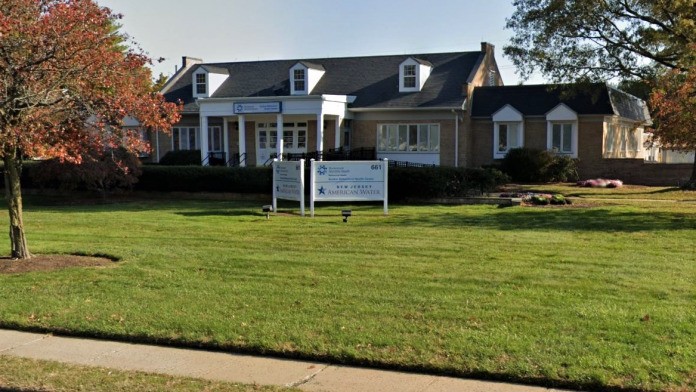
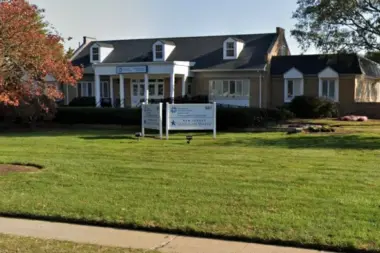
Accepted Insurance
Other Forms of Payment
Private insurance refers to any kind of healthcare coverage that isn't from the state or federal government. This includes individual and family plans offered by an employer or purchased from the Insurance Marketplace. Every plan will have different requirements and out of pocket costs so be sure to get the full details before you start treatment.
Self-pay involves paying for treatment out of your own pocket. You can use savings or credit, get a personal loan, or receive help from family and friends to fund your treatment. If you don't have insurance or your insurance plan doesn't cover a specific program, self-pay can help ensure you still get the care you need.
Financial aid can take many forms. Centers may have grants or scholarships available to clients who meet eligibility requirements. Programs that receive SAMHSA grants may have financial aid available for those who need treatment as well. Grants and scholarships can help you pai for treatment without having to repay.
Sliding scale payments are based on a client's income and family size. The goal is to make treatment affordable to everyone. By taking these factors into account, addiction recovery care providers help ensure that your treatment does not become a financial burden to you or your family, eliminating one barrier to care.
Medicare is a federal program that provides health insurance for those 65 and older. It also serves people under 65 with chronic and disabling health challenges. To use Medicare for addiction treatment you need to find a program that accepts Medicare and is in network with your plan. Out of pocket costs and preauthorization requirements vary, so always check with your provider.
Military members, veterans, and eligible dependents have access to specific insurance programs that help them get the care they need. TRICARE and VA insurance can help you access low cost or no cost addiction and mental health treatment. Programs that accept military insurance often have targeted treatment focused on the unique challenges military members, veterans, and their families face.
Medicaid is a state based program that helps lower-income individuals and families pay for healthcare. Medicaid covers addiction treatment so those enrolled can use their coverage to pay for rehab. When a program accepts Medicaid the client often pays very little or nothing out of their own pocket.
Addiction Treatments
Levels of Care
Booker Behavioral Health Center offers outpatient addiction and mental health programs, providing flexible treatment options for individuals seeking recovery support. Their outpatient rehab services are designed to promote lasting sobriety while allowing patients to maintain daily responsibilities.
The center’s intensive outpatient program (IOP) offers structured, evidence-based treatment for substance use and mental health disorders. This PHP treatment option supports recovery with therapy, counseling, and relapse prevention strategies in a community-based setting near Shrewsbury.
Post-treatment, the facility provides aftercare programs to sustain recovery, including ongoing counseling and relapse prevention. Their aftercare support helps individuals transition smoothly from intensive treatment to long-term sobriety in the New Jersey area.
The partial hospitalization program (PHP) offers comprehensive mental health and addiction treatment during the day, with structured therapy and support. This PHP rehab is ideal for those needing intensive care while living at home, promoting recovery in a healing environment.
The center provides medically assisted detox to safely manage withdrawal symptoms from substances like opioids and alcohol. Their detox facilities focus on comfort and safety, supporting individuals through the initial phase of addiction recovery.
Treatments
Booker Behavioral Health Center offers specialized alcohol addiction treatment, including outpatient programs designed to support recovery from alcoholism. Their compassionate staff provides evidence-based therapies to help individuals achieve lasting sobriety in a supportive environment near Shrewsbury, New Jersey.
The facility provides comprehensive drug addiction treatment, including outpatient detox and rehabilitation services. Their addiction recovery center emphasizes personalized care and evidence-based therapies to support individuals battling substance use disorders, including opioids and other drugs, in the Monmouth County area.
Hackensack Meridian Health’s dual diagnosis treatment center offers integrated care for co-occurring mental health and substance use disorders. Their program combines psychiatric and addiction therapies, providing a tailored approach to support recovery for individuals with complex mental health needs near Shrewsbury.
The center specializes in mental health and substance abuse treatment, offering outpatient and intensive outpatient programs. Their evidence-based therapies aim to improve mental wellness and support addiction recovery, serving the local community with compassionate, expert care.
The facility provides opioid addiction treatment, including medically assisted detox and outpatient rehab programs. Their services focus on reducing cravings and supporting safe recovery from opioid dependence, utilizing evidence-based approaches in a trusted New Jersey healthcare setting.
Programs
The adult program offers tailored mental health and addiction treatment services, including outpatient and inpatient options. Their evidence-based therapies support adults in overcoming substance use and mental health challenges in a trusted New Jersey healthcare setting.
The young adult program provides specialized addiction and mental health treatment for young adults, incorporating evidence-based therapies and recovery coaching. This program supports early recovery efforts in a compassionate environment near Shrewsbury, NJ.
Clinical Services
Cognitive Behavioral Therapy (CBT) is a therapy modality that focuses on the relationship between one's thoughts, feelings, and behaviors. It is used to establish and allow for healthy responses to thoughts and feelings (instead of unhealthy responses, like using drugs or alcohol). CBT has been proven effective for recovering addicts of all kinds, and is used to strengthen a patient's own self-awareness and ability to self-regulate. CBT allows individuals to monitor their own emotional state, become more adept at communicating with others, and manage stress without needing to engage in substance abuse.
Dialectical Behavior Therapy (DBT) is a modified form of Cognitive Behavioral Therapy (CBT), a treatment designed to help people understand and ultimately affect the relationship between their thoughts, feelings, and behaviors. DBT is often used for individuals who struggle with self-harm behaviors, such as self-mutilation (cutting) and suicidal thoughts, urges, or attempts. It has been proven clinically effective for those who struggle with out-of-control emotions and mental health illnesses like Borderline Personality Disorder.
Group therapy is any therapeutic work that happens in a group (not one-on-one). There are a number of different group therapy modalities, including support groups, experiential therapy, psycho-education, and more. Group therapy involves treatment as well as processing interaction between group members.
In individual therapy, a patient meets one-on-one with a trained psychologist or counselor. Therapy is a pivotal part of effective substance abuse treatment, as it often covers root causes of addiction, including challenges faced by the patient in their social, family, and work/school life.
Whether a marriage or other committed relationship, an intimate partnership is one of the most important aspects of a person's life. Drug and alcohol addiction affects both members of a couple in deep and meaningful ways, as does rehab and recovery. Couples therapy and other couples-focused treatment programs are significant parts of exploring triggers of addiction, as well as learning how to build healthy patterns to support ongoing sobriety.
Research clearly demonstrates that recovery is far more successful and sustainable when loved ones like family members participate in rehab and substance abuse treatment. Genetic factors may be at play when it comes to drug and alcohol addiction, as well as mental health issues. Family dynamics often play a critical role in addiction triggers, and if properly educated, family members can be a strong source of support when it comes to rehabilitation.
Life skills trainings involve all the skills a person must have in order to function successfully in the world. These include time management, career guidance, money management, and effective communication. Truly successful addiction recovery is based on the ability to not only live substance-free, but to thrive. Life skills teaches the practical necessities of functioning in society, which sets clients up for success in life, and therefore sobriety.
Experiential therapy is a form of therapy in which clients are encouraged to surface and work through subconscious issues by engaging in real-time experiences. Experiential therapy departs from traditional talk therapy by involving the body, and having clients engage in activities, movements, and physical and emotional expression. This can involve role-play or using props (which can include other people). Experiential therapy can help people process trauma, memories, and emotion quickly, deeply, and in a lasting fashion, leading to substantial and impactful healing.
Amenities
-
Residential Setting
-
Private Setting
Staff & Accreditations
Staff
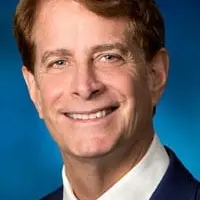
Robert. C. Garrett, FACHE
CEO of Hackensack Meridian Health
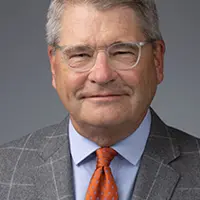
Jeffrey R. Boscamp, M.D.
President and Dean Hackensack Meridian School of Medicine
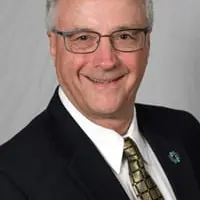
Mark S. Stauder
COO
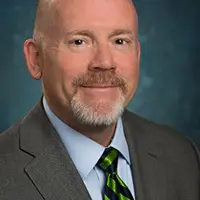
Daniel W. Varga, M.D.
Chief Physician Executive
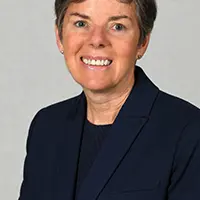
Regina Foley, Ph.D.
Executive VP, Chief Nursing Executive and Chief Clinical Transformation & Integration Officer
Accreditations

The Substance Abuse and Mental Health Services Administration (SAMHSA) is a branch of the U.S. Department of Health and Human Services. Established in 1992 by congress, SAMHSA's mission is to reduce the impact of substance abuse and mental illness on American's communities.
SAMHSA Listed: Yes

The Joint Commission, formerly known as JCAHO, is a nonprofit organization that accredits rehab organizations and programs. Founded in 1951, the Joint Commision's mission is to improve the quality of patient care and demonstrating the quality of patient care.
Joint Commission Accreditation: Yes
Accreditation Number: 5986
Contact Information
661 Shrewsbury Avenue
Shrewsbury, NJ 07702




